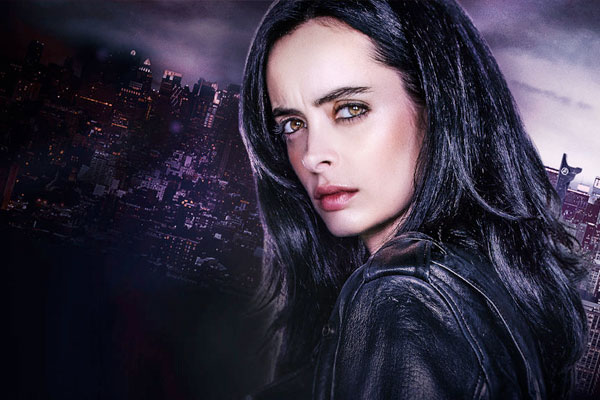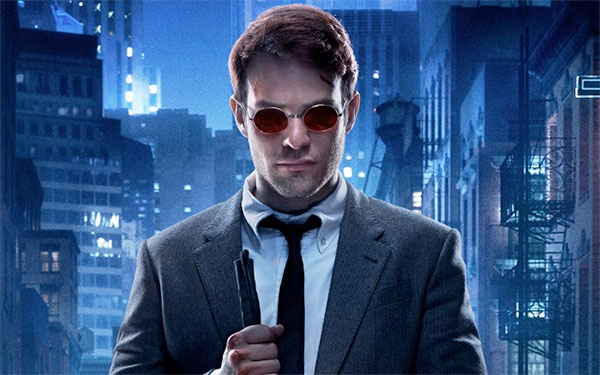2015 in TV: Top 10 (10-6)
Feature by Louis Rabinowitz.
2015 was yet another landmark year for TV as the industry continued to grow and diversify, with an astonishing 409 scripted original shows airing just this year. Despite the growing volume of TV, however, there were more gems than ever within this huge number – with action-packed superhero shows like Supergirl and Daredevil, innovative new dramas like Mr Robot and Humans, and solid returnees such as Fargo and Doctor Who. Both in the UK and abroad, 2015 saw the television juggernaut pick up pace, so here is my top ten favourite shows of this jam-packed year:
10. iZombie

If you haven’t heard of iZombie at all, I don’t blame you. Airing in the US to low ratings and failing to even find a UK broadcaster, iZombie is the definition of a cult show. It’s unfortunate, really, that it hasn’t achieved the success of its more conventional channel neighbours like The Flash, because it’s a show that richly deserves a greater level of popularity.
Starting with a ludicrous concept – perky heroine Liv Moore gets turned into a zombie and subsequently works in a morgue in order to eat brains of murder victims to discern who killed them, working with a policeman who thinks she’s a psychic and being affected by the personality of whosever brain she ate and – iZombie has gradually developed into one of the most consistent shows around. It’s a refreshing take on the zombie genre, exploring the struggles of someone who has been cut off from society in a way very few pieces of zombie fiction do, and mostly ignoring the more conventional tropes of shuffling corpses hungering for brains that we’ve all seen before. It works well as a standard procedural, delivering compelling, quirky cases that frequently manage to surprise, and backs that weekly formula up with a plethora of other great things. It’s wickedly funny, never taking itself too seriously and always wringing humour out of dire situations, and the humour is conveyed well by an engaging gallery of endearing characters.
Unlike many shows of its ilk, the villains are some of the most enjoyable parts of the show – David Anders’ Blaine is one of the strongest, funniest takes on the ‘friendly enemy’ concept I’ve seen around, and Steven Weber’s nefarious CEO is a hilarious, self-aware pastiche of the standard cackling corporate bad guy. It’s all anchored by a terrific central performance from the chameleonic Rose McIver, who nails the hugely differing personalities that are thrown at her every week while remaining endearing and likeable, even if the personality of the week is on the less affable side.
Unfairly tarred with the same brush as many weaker pieces of zombie fiction, iZombie is a charming little show that settled into a groove early on and now consistently delivers top-notch instalments week in, week out.
9. Humans

A surprising hit that aired in the dog days of summer to record ratings on Channel 4, Humans was a sci-fi story that finally captured the imagination of the viewing public in a way very few of its predecessors could. Humans built off its grounded, relatable modern day setting to pose and explore a series of genuinely thought-provoking questions, mining its central subject of artificial intelligence for ethical quandaries that made this into a thoughtful, intelligent show that really had something to say about human nature. An extensive cast of British stalwarts like Katherine Parkinson and Colin Morgan mixed with international faces like William Hurt, all of whom brought pathos and humanity to their grounded performances – but it was Gemma Chan as Anita who stole the show as AI Anita, nailing both the dissonant mannerisms of AI and the brief spots of emotion that seeped through at points. It came to something of a halt in a spotty finale that was torn between setting up season two and neatly tying up season one, and the villain was one of the far less interesting characters, but overall it’s hard not to be pleased that a sci-fi show of this quality has achieved genuine ratings success.
8. The 100

In its second season, especially the half that aired this year, The 100 became something quite special – a hugely entertaining action show with a hell of a lot of substance beyond the gunfights and agreeably fast pace. This was a show that developed from a standard young adult action series to something that brutally, effortlessly skewered and subverted the traditional tropes of the genre. Previously do-gooding characters transformed into heavily flawed, battle-scared people who are forced into brutal decisions that get a whole lot of innocent people killed. Previous villains became moral centres, but even they couldn’t do much to stop horrible events. And the guy who was the typical Yoda-esque wise leader in season one became a maniacal zealot who’d kill innocent people to reach his fabled destination.
Impressively for a show of its presumably tiny CW budget, The 100 has built an engrossing, lived-in post-apocalyptic world – while the conflicts between the survivors and their enemies provide the immediate gratification, The 100 is able to slowly, patiently unfurl more and more of the world, adding factions, locations and ideologies to the mix while always staying laser-focused on its characters. It’s a testament to this show’s excellent world building that by the end of season two, it feels like we’ve both explored this world in depth, whilst having barely scratched the surface of what the post-apocalyptic landscape offers. Uncompromising, stark and often brutal, The 100 is a far richer and more substantial show than its initial appearance may indicate, having morphed from a regular young adult show to what’s almost a sci-fi Game of Thrones at this point.
7. Jessica Jones

Of the two initial Marvel/Netflix shows, Jessica Jones has generally attracted more critical acclaim, most likely because it’s far less of a standard superhero show than its more straightforward counterpart. That’s no bad thing, though, and Jessica Jones is great because it takes the tropes of a superhero show and meticulously deconstructs them.
The titular protagonist is an acerbic, frequently unpleasant person who makes a lot questionable decisions due to her crippling PTSD and alcoholism. The bad guy, Kilgrave, is a deluded rapist who kills, maims and tortures with his mind controlling abilities yet prides himself on the fact he’s never directly killed anyone. This is a dark, heavy show – but because of that it’s a thoroughly refreshing entry into the genre. There are no attempts to sugarcoat anything – just sensitive, honest explorations of deep, dark subjects that barely any other property would touch with a barge pole. It’s not just for shock either, as Jessica Jones really has a considerable amount to say about these issues, mixing in meaningful social commentary alongside with the pitch-black themes.
This show has one hell of a cast, anchored by the terrific Krysten Ritter as the spiky yet deeply vulnerable Jessica who only lets her mask slip to just one or two people, and David Tennant as Kilgrave, who utterly sells the villain’s childlike, self-cented mentality and subtle yet chilling psychosis, with Mike Colter’s Luke Cage the endearing and stoic moral centre of sorts. It’s tense, violent, and thick with the tangible sense of paranoia that Jessica’s constantly suffering from – the idea that anyone could be a Kilgrave puppet is a consistent, chilling threat across the series. It may get a little too heavy at points, and doesn’t always provide the most individually entertaining episodes, but this is a brave show that pulls no punches in exploring issues no other piece of superhero fiction would think of.
6. Daredevil

The first of Marvel’s forays into the magical world of Netflix, Daredevil was a different kind of superhero show. Dark and gritty, but meaningfully so, with the tone projecting a sense of despair and hopelessness the show needed to underline the horrible mess of Hell’s Kitchen. Thanks to Netflix’s liberal policies on what kind of content can be included in their shows, Daredevil was also by far the most violent superhero show around. But, like the tone, that violence is used in a meaningful way, leading to a set of visceral, bloody fight scenes that really effectively conveyed the sheer effort Matt Murdock is going through to take down even simple goons.
The fight scenes were undoubtedly a major strength of Daredevil, but the real star of the show here was Wilson Fisk, potentially one of the best live-action comic book villains of all time, He’s introduced slowly, as a figure of fear spoken of only in whispers – then when we do see him, the rug’s pulled out from under our feet as he’s revealed as a shy, sensitive man looking for a soulmate. The central strength of Fisk is that he’s incredibly sympathetic – he’s given a fully fleshed out romantic arc in place of Matt, and his end goal is entirely identical to the hero he faces; to clean up Hell’s Kitchen. He just wants to achieve it by more practical means than the more altruistic Matt. Fisk was a triumph of a villain – a layered, three-dimensional figure who you could genuinely root for even in the latter parts of the show. A story is only as good as its villain – and with Fisk, Daredevil had a villain that blew most of his MCU competitors out of the water.



